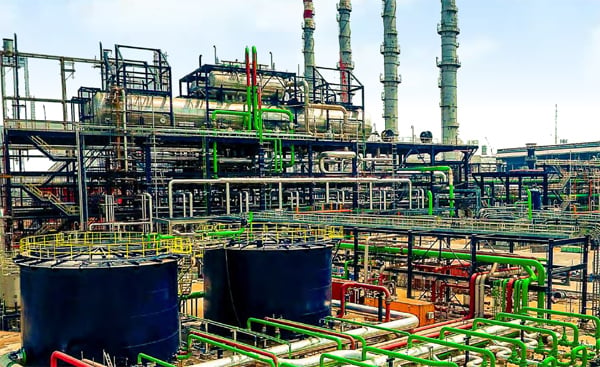By Adewale Sanyaolu
Nigeria’s domestic refining of Premium Motor Spirit (PMS), popularly known as petrol, has reportedly fallen short by about 9.8 million litres per day.
Industry sources indicate that the deficit is currently being bridged through imports to prevent any disruption in the country’s fuel supply chain.
The Dangote Petroleum Refinery, at the weekend, said it currently supplies over 40 million litres of petrol daily into the domestic market, alongside steady volumes of Automotive Gas Oil (diesel). These supplies continue unabated, despite speculation suggesting otherwise.
“As the world’s largest single-train petroleum refinery, the facility employs advanced predictive and preventive maintenance protocols to ensure uninterrupted operations. Routine maintenance activities are standard and do not impact the overall fuel supply,” the statement further clarified.
In response to speculation about potential supply shortages and price increases, the refinery challenged those sponsoring the rumour to place orders for daily deliveries of up to 40 million litres of PMS and 15 million litres of diesel for the next 90 days.
“To those who believe this misinformation and anticipate a bullish market, we extend a challenge: We invite interested buyers to place immediate orders for up to 40 million litres of PMS daily and 15 million litres of AGO daily, for the next 90 days.”
The refinery reaffirmed its commitment to transparency and Nigeria’s energy security, urging the public to disregard unfounded rumours sponsored by unscrupulous and unpatriotic individuals seeking to undermine the country’s energy independence for their own selfish interests, including the importation of substandard fuels under the false pretext of domestic supply shortages.
But the Chief Executive Officer (CEO) of the Nigerian Midstream Downstream Petroleum Regulatory Authority (NMDPRA), Mr. Farouk Ahmed, recently disclosed that Nigeria’s average petrol consumption had dropped to 49.8 million litres per day.
Subsequently, from September 2024 to date, Ahmed said the average petrol consumption dropped to 49.8 million litres per day from 51.8 million litres per day between January and August 2024.
The 49.8 million litres represent a shortfall of 9.8 million litres daily when deducted from the 40 million litres being supplied into the domestic market daily by the Dangote Petroleum Refinery.
The NMDPRA CEO attributed the decline in petrol consumption to less driving due to the increased cost of the product, adding that since petrol subsidy payments were halted, “the nation now has excess funds for other sectors.”
Giving a further breakdown of the consumption figures, Farouk added that Nigeria’s average daily petrol consumption decreased to 49.8 million litres from 66.9 million litres as of May 2023.
As of 2015, he said the country’s daily sufficiency was 48.71 million litres.
Ahmed said the figure was 48.9 million litres in 2016, 50.2 million litres in 2017, 53.5 million litres in 2018, and 56.4 million litres in 2019.
In 2020, Ahmed said the country’s daily petrol consumption fell to 55.6 million litres before increasing again to 61.9 million litres in 2021 and 66.7 million litres in 2022.
Between January 2023 and May 2023, when the petrol subsidy was removed, the NMDPRA CEO said the country’s daily petrol consumption averaged 66.9 million litres, which he described as “very high.”
“So, first of all, the price (of petrol) was low, the borders were porous, the price in the neighbouring countries was high because it was easy to cross, and even locally, the naira value was low because naira was subsidised against the dollar,” Ahmed said.
From June 1, 2023, to December 2023, Ahmed said daily petrol consumption dropped to 47.5 million litres “because the subsidy was gone and so the market curtailed itself,” adding that there was also exchange rate harmonisation.
From January 2024 to August 2024, he said petrol consumption went up to 51.8 million litres per day.
Subsequently, from September 2024 to date, Ahmed said the average petrol consumption dropped to 49.8 million litres per day.


















Leave a comment